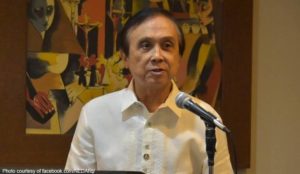Philippines Air Asia has decided not to pass on added fuel costs to flyers in a move that undercuts its competitors which availed themselves of the recently approved fuel surcharge mechanism.
The budget airline said in a statement on Tuesday that it would not increase ticket prices through a surcharge on domestic and international flights even as rivals Philippine Airlines and Cebu Pacific Air have done so in recent weeks.
The fuel surcharge, scrapped by the government in 2015, was again allowed last month as a means for airlines to partially recover expenses arising from the surging price of crude oil.
“To help reduce travel cost and stimulate more demand for travel and tourism, we will not be adding fuel surcharge on our fares for all domestic and international flights. We want to keep our fares low to encourage more people to travel,” Dexter Comendador, Philippines Air Asia CEO, said.
Philippines Air Asia is a unit of one of the region’s largest budget airlines. However, it trails PAL and Cebu Pacific in the Philippines.
Its decision not to increase fares in this manner signaled an intention to capture a bigger slice of the market as price-sensitive flyers seek more inexpensive options. Consultancy firm CAPA-Center for Aviation estimated Philippines Air Asia’s market share at 17 percent in 2017.
The rising cost of jet fuel has been a drag on the global airline industry’s profitability. At home, regulators are also worried that airlines might cut back on less profitable routes to preserve their bottomline.
According to S&P Global Platts, the price of jet fuel as of Sept. 21 this year stood at $91.65 a barrel, up 28.4 percent year-on-year. Jet fuel is typically the single-biggest operating cost in the airline business. —MIGUEL R. CAMUS


